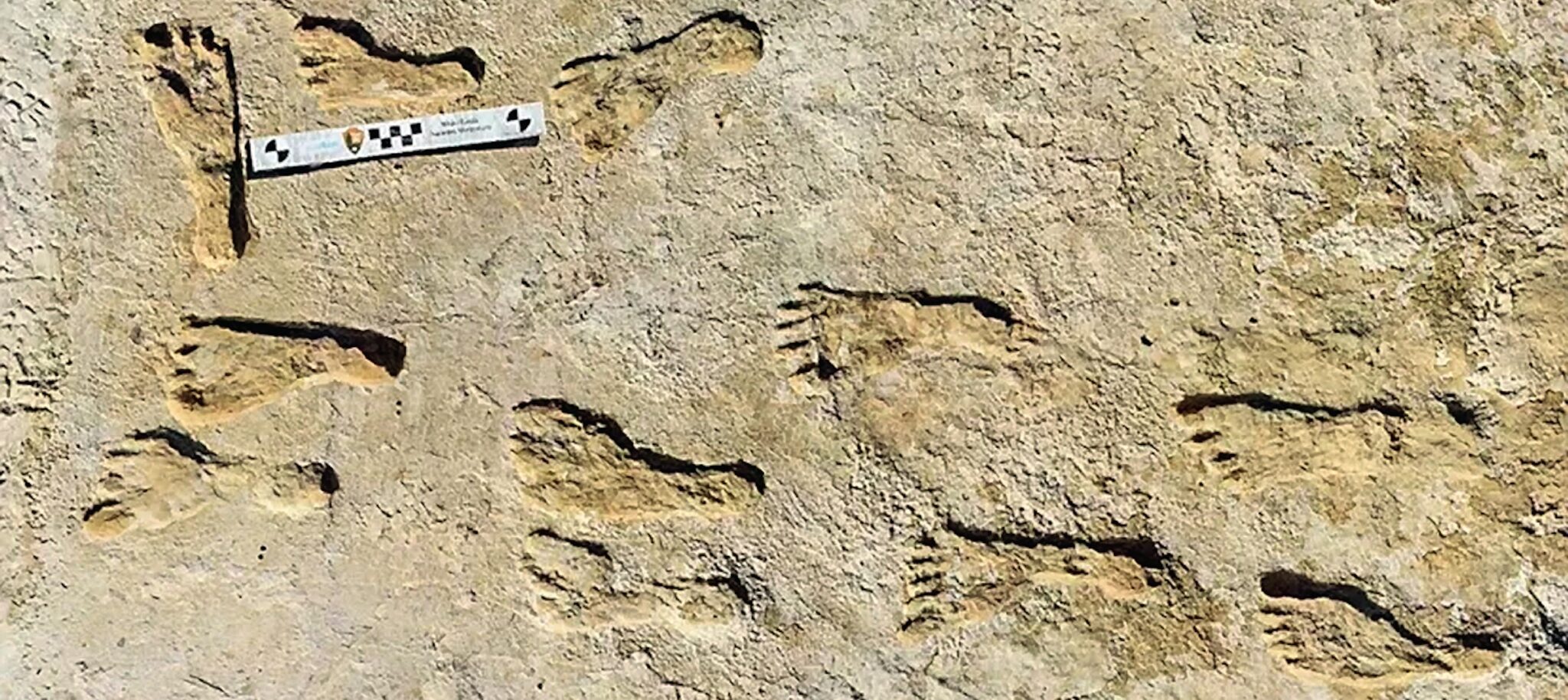According to what has long been the dominant theory, the first humans to settle North America arrived via the Aleutian land bridge from Asia sometime between 16,000 and 13,000 years ago, after Ice Age glaciers receded. But in 2021, ancient footprints in alkali flats in White Sands National Park in New Mexico were dated to 21,000 to 23,000 years ago based on carbon dating of seeds found in the footsteps. The study suggested that humans were already here during the Last Glacial Maximum. The science community was skeptical, so researchers returned to the footprints and buttressed their extraordinary claim with new evidence, including carbon dating of terrestrial pollen and another dating method called optically stimulated luminescence that tells when quartz crystals were last exposed to the sun.
Berkeley adjunct associate professor of geography and study co-author David Wahl, M.A. ’00, Ph.D. ’05, told Berkeley News that when the original paper was published in 2021 “the authors were very cautious about claiming a paradigm shift, which is what this is all about.” Critics, he said, asked for “more than one piece of evidence, and we’ve given them a total of three. So, we’re feeling really good.”





















